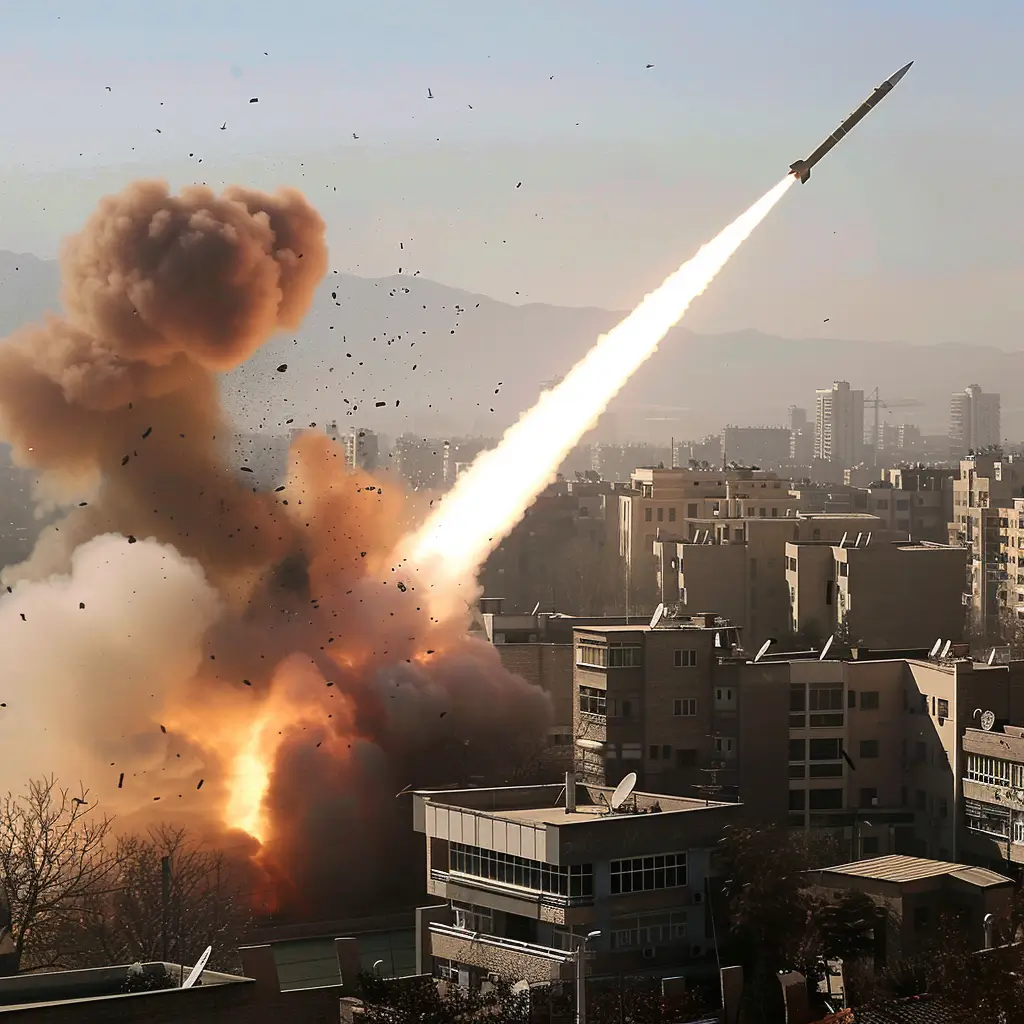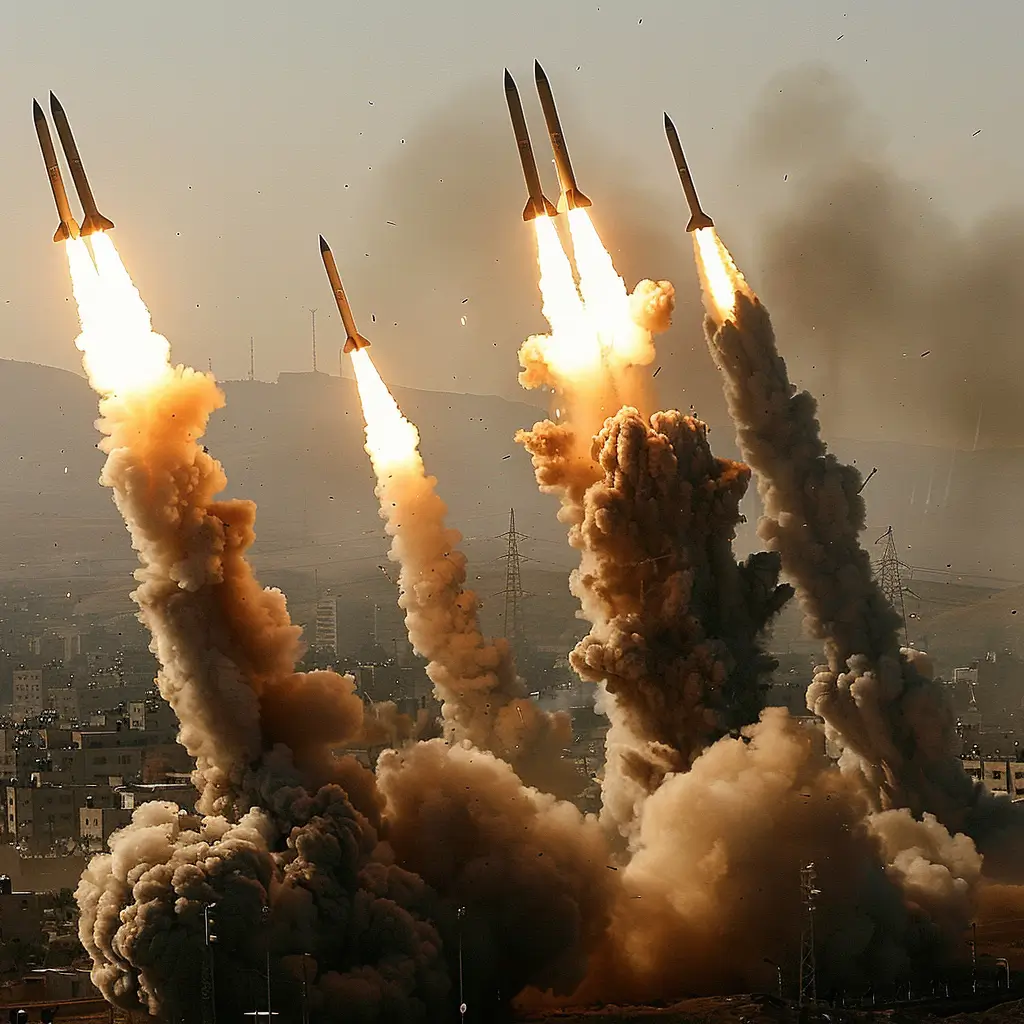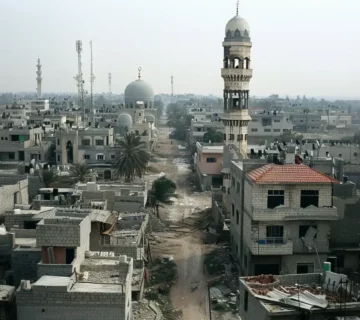The prospect of renewed aggression between Iran and Israel has once again captured international attention. Over the past few months, their long-standing rivalry has escalated dramatically, leaving many to question whether Iran will strike Israel again. With increasing missile exchanges and rising tensions, the entire Middle East sits on the edge of potential conflict, marking a critical moment in this decades-old antagonism.
Recent Escalation: What Has Happened?
This recent about of hostilities began with Iran launching a substantial missile strike on Israel, marking only the second direct attack in recent years. On Tuesday, Iran fired approximately 180 ballistic missiles at Israel. While Israel managed to intercept many of these, several penetrated the defenses, causing damage to military and intelligence facilities. This represented a significant escalation, and it was partly motivated by the assassination of two key figures: Hassan Nasrallah, leader of Hezbollah, in Beirut, and Ismail Haniyeh, a Hamas leader, in Tehran.
Iran’s leadership has made it clear that these missile strikes were only the beginning if provoked again. Ayatollah Ali Khamenei, Iran’s supreme leader, praised the attack, calling it a “shining” achievement for Iran’s armed forces and stated that Tehran is prepared to repeat such actions as needed. This rhetoric highlights Iran’s ongoing readiness to engage in confrontation with Israel should tensions continue to boil.
Israel’s Potential Response: Preparedness and Targets
Israel has shown no signs of backing down. Prime Minister Benjamin Netanyahu has promised that “Iran will pay a heavy price” for its actions. Israel, supported by its closest ally, the United States, has a range of potential retaliatory options on the table. Analysts suggest that Israeli strikes could target Iran’s conventional military infrastructure, including missile launch pads and storage bunkers.
In addition to military targets, Israel could consider striking economic infrastructure—such as petrochemical plants and power facilities—which could severely impact Iran’s economy. There’s also the possibility of attacks on nuclear facilities, including well-known sites such as Natanz and Bushehr. These options underscore the gravity of Israel’s response, which aims not only to deter future missile strikes but also to significantly weaken Iran’s capacity to project power in the region.
A Dangerous Crossroads for the Middle East
The current standoff between Israel and Iran extends beyond these two nations. Iran’s threat to respond to any Israeli retaliation by striking U.S. bases across the Gulf region or potentially interrupting global oil flows by sowing mines in the Strait of Hormuz makes this a regional crisis. The possibility of Iran leveraging its allies—such as Hezbollah in Lebanon, various militia groups in Syria, and the Houthis in Yemen—further adds to the complexity and risk of the situation.
Iran’s Revolutionary Guards Corps (IRGC) has emphasized its readiness to unleash a “crushing response” if Israel escalates the conflict. Iran has substantial capabilities in terms of ballistic missiles, explosive-laden drones, and regional proxy forces. The 2019 attack on Saudi oil facilities demonstrated Iran’s potential to destabilize the broader region.
Military Analysis: Iran’s Missile Arsenal
Iran’s ballistic missile strike this week, although substantial, resulted in limited damage. The missiles launched included some of Iran’s most advanced, such as the Ghadr, Emad, and potentially the newer Fattah missile—claimed to have some hypersonic capabilities. However, experts are questioning the effectiveness of these missiles, especially given the relatively low impact on Israel’s ground infrastructure compared to the number of rockets fired.
Unlike the one in April, the recent attack utilized many fast-launch capabilities, suggesting Iran may now possess more mobile launchers than previously estimated. Despite this, although slightly depleted, Israeli defense systems managed to intercept most missiles, limiting their impact. This raises doubts about Iran’s capacity to deliver a genuinely damaging blow through missile strikes alone.
Could Iran Strike Again?
Whether Iran will attack Israel again depends on several factors, including Israel’s response. The dynamics of this conflict are influenced heavily by regional power plays and domestic politics within both nations. Tehran has vowed that, if provoked, further missile strikes could be aimed at more vulnerable areas, including civilian centers. This raises the specter of higher casualties and a more severe regional conflict.
Iran’s current stance suggests a calculated approach—using missile strikes primarily as a deterrence mechanism. However, its warnings to expand retaliation beyond Israel indicate a willingness to escalate, mainly if Iranian assets are significantly targeted. Experts suggest that Tehran could also consider non-military tactics, such as threatening global oil supplies, to create economic pressure.
The Role of Regional and Global Players
The United States remains a critical actor in this standoff, offering intelligence and defense support to Israel. U.S. destroyers have already assisted in intercepting some of the incoming Iranian missiles, highlighting the importance of American involvement. Any escalation between Israel and Iran has the potential to draw in other regional actors, particularly those that host U.S. military bases or are strategically aligned with either nation.
Iran’s alliance with Hezbollah and its influence over various militias in the region also complicates the situation. Iranian-backed groups are already mobilized in places like Lebanon, Syria, and Iraq, and their involvement in any conflict could quickly expand the scope of violence beyond Israel and Iran.

Looking Forward: The Threat of Further Escalation
At this point, the Middle East stands on the edge of a potentially disastrous escalation. Israel’s likely military response will determine whether Iran will retaliate again, possibly broadening the conflict across the region. The question remains not only if Iran will attack again but how both nations can avoid a broader war that could devastate the area.
Iran’s current limitations—an outdated air force and porous air defenses—suggest that it is not in a position to win a confrontation with Israel. Yet, its asymmetric capabilities, such as missiles, drones, and regional proxies, mean that it can still inflict significant damage, mainly if civilian areas are targeted.
Diplomatic efforts and regional alliances may still help prevent further escalation. However, with both sides entrenched in their positions, the risk of renewed attacks remains high, and the possibility of a broader Middle Eastern conflict is more present than ever.



